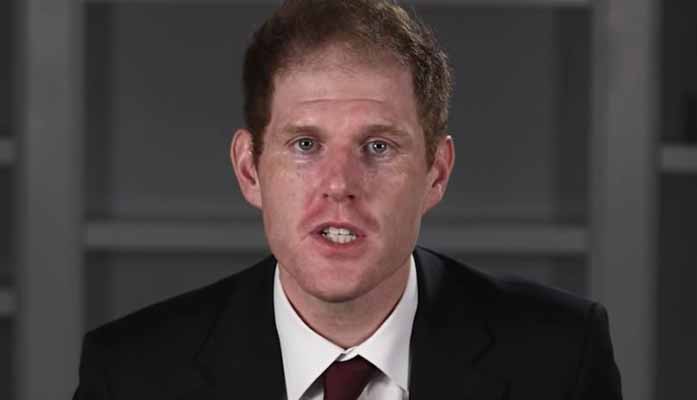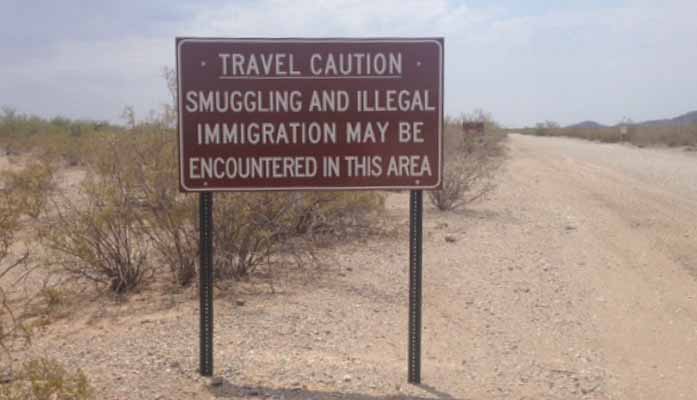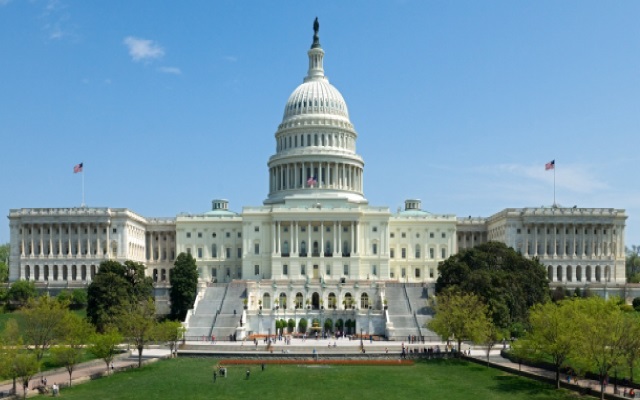
by Daniel Stefanski | Oct 8, 2023 | News
By Daniel Stefanski |
As Arizonans prepare to head back into an election year, the state Republican Party is celebrating an encouraging quarter of fundraising.
On Tuesday, the Arizona Republican Party (AZGOP) announced that it had raised over $340,000 in the third quarter of the year (July-September). The fundraising was made possible from the donations of over 2,700 separate donors as well as over $34,000 from the National Republican Senatorial Committee, according to the AZGOP’s release.
In a statement, AZGOP Chairman Jeff DeWit said, “It takes a little while for any new Chairman and executive team to get their footing with the job and the donor base, but our extensive outreach has shown the base that we are using our resources wisely and efficiently. We are building the infrastructure that will win races, and these results are proof that rank and file Republicans, as well as the donor community, are happy with what they’ve seen so far.”
Members of DeWit’s team – Christine Ong Cothrun, Gina Swoboda, and Elijah Norton – were given kudos for their hard work, in addition to the dozens of Republican leaders who comprise the executive committee. The AZGOP’s release revealed that the committee’s “savvy financial decision to invest the proceeds of the sale of the previous party headquarters into a new office” has already “generated over $10,000 per month in rental income from other Republican groups.”
The AZGOP’s release adds context to the fundraising numbers for the third quarter, educating readers to “look at the third quarter of 2019, during the first year under the previous state party Chair and the year before the last Presidential election” to best compare the data. According to the information provided by the Party, the AZGOP raised $248,120 in the third quarter of 2019, which means that the 2023 numbers represent a 37% uptick in fundraising dollars from that year. The AZGOP’s third quarter report also shows a 348% increase in dollars raised from the second quarter.
DeWit and his team will need every possible penny from donors in advance of the onslaught of significant campaigns in 2023. Arizona is a high-stakes swing state in the 2024 Presidential contest, and the eventual Republican nominee will likely require the state’s 11 electoral votes if he (or she) is to capture the White House. The Grand Canyon State will also feature one of the nation’s most competitive U.S. Senate races, and both major political parties will be vying for control of the state legislature, where Republicans hold very narrow majorities in both chambers. In addition, there may very well be multiple ballot measures for voters to consider in November that could permanently change the state’s DNA.
Daniel Stefanski is a reporter for AZ Free News. You can send him news tips using this link.

by Corinne Murdock | Oct 7, 2023 | News
By Corinne Murdock |
Maricopa County Recorder Stephen Richer says that a number of progressive social issues aren’t major threats to America.
Richer dismissed the notion that transgender activism, woke corporations, and critical race theory were the most important challenges facing America. He also deprioritized the concerns over globalization, worker power, and financialization.
Rather, Richer declared that he believed government regulation, tax rates, free trade, and illegal immigration were the top challenges facing America.
Specifically: tax rates on corporations and job creators are too high, regulation is discouraging business growth and innovation, and tariffs on China are raising prices and interfering with free trade.
The county recorder elicited his self-characterization in response to an American Compass report on a survey of Republicans describing “The New Conservative Voter.” By the report’s standards, Richer declared himself to be the “old right.”
“Naive of me to think politics was about competing ideas for a governing philosophy,” stated Richer.
A majority of survey respondents believed, in order, that transgender activism, woke corporations, illegal immigration, critical race theory, and globalization were the top five most important challenges facing America.
Those survey responders most concerned with the threat of progressive cultural issues were characterized as “cultural” Republicans. They agreed that transgender activists are trying to erase the differences between boys and girls; that “woke” corporations are forcing their values on Americans; and that schools, businesses, and even the military are telling Americans that the country is racist.
Survey responders most concerned with illegal immigration, family and fertility, and higher education were characterized as “consensus” Republicans. They agreed that illegal immigration undercuts American workers and lowers their wages; not enough people are married and having kids; and the education system only works for people who are able to succeed in college.
Those survey responders most concerned with globalization, worker power, and financialization were characterized as “new right” Republicans. They agreed that American manufacturing has been gutted by globalization and trade with China; workers have little control over their jobs and can’t do anything about it; and people make more money working Wall Street than building real businesses.
The survey respondents also overwhelmingly agreed that it’s become harder for a family to achieve middle-class security in America, that employers should offer better jobs and higher pay to bring in more workers, that colleges should have to bring down their costs and make loans themselves to students who need them, that tariffs are good and needed to boost American manufacturing, that the government should provide support to ensure that America is a leader in advanced technologies like semiconductors, that politicians should focus on cutting taxes and never consider raising them, and that the government shouldn’t implement welfare stipends under a “family benefit” policy.
However, survey respondents were more evenly divided on two issues. A lesser majority agreed that Wall Street investors are getting rich doing things that weaken our economy, and that unions are a negative force that harm workers, employers, and consumers.
Corinne Murdock is a reporter for AZ Free News. Follow her latest on Twitter, or email tips to corinne@azfreenews.com.

by Corinne Murdock | Oct 7, 2023 | News
By Corinne Murdock |
The District of Columbia attorney general is investigating Arabella Advisors, the dark money giant operating a national funding network for leftist nonprofits, including in Arizona.
The Washington Free Beacon discovered that the DC attorney general issued subpoenas last month to Arabella Advisors, as well as its largest clients, concerning investigative reporting about tax law aversion and illegal profiteering.
Arabella Advisors manages five nonprofits that funnel dark money funds into other leftist nonprofits and initiatives: New Venture Fund, Sixteen Thirty Fund, Hopewell Fund, Windward Fund, and the North Fund. Their influence is expansive, both nationally and in Arizona.
The five nonprofits all funded One Arizona, a coalition of leftist nonprofits, who in turn funded Living United for Change in Arizona (LUCHA), Chispa AZ, Arizona Advocacy Network, ProgressNow AZ, and Mi Familia Vota. Those nonprofits used that funding to advance their causes in Arizona’s elections.
An outgrowth of the New Venture Fund’s front initiative, We Mean Business Coalition, collaborated with the Carbon Disclosure Project and World Resources Institute to create the Science Based Targets initiative (SBTi). Last November, the Biden administration proposed granting decision-making power on defense contracts to SBTi. In February a key initiative of SBTi, the Advanced and Indirect Mitigation (AIM) Platform, launched at GreenBiz 23 in Scottsdale.
Another New Venture Fund initiative, Campus Vote Project, has a presence across 41 states. In Arizona, the initiative coordinates with Arizona State University, Mesa Community College, South Mountain Community College, Northern Arizona University, Eastern Arizona College, Cochise College, Chandler-Gilbert Community College, and Phoenix College to increase voter turnout among college students.
Prior to the 2020 election, only Mesa Community College and South Mountain Community College were recognized by the dark money-originating initiative.
Also concerning higher education, the New Venture Fund created a scholarship program fund that partnered with Northern Arizona University (NAU) last year to pay illegal immigrant students’ tuition.
The Sixteen Thirty Fund was a major funder to the nonprofit Way to Win, which spent $110 million in key states, including in Arizona, to ensure Democratic victories in 2020. Way to Win served as the sponsor to Progress Arizona (formerly ProgressNow Arizona), who was led by Gov. Katie Hobbs’ ousted spokeswoman, Josselyn Berry, until at least 2021.
Those listed as running Progress Arizona, according to their latest available tax return (2021), were:
- Emily Kirkland (executive director): Arizona Education Association communications director; former senior political strategist for the Colibri Collective; former director of Organizing for 350 Massachusetts and communications coordinator for Better Future Project
- Ariel Reyes (director): Instituto political director; former Arizona Wins political director; former lobbyist for the Torres Consulting and Law Group
- Elsa O’Callaghan (director): consultant with Prickly Pear Consulting; executive director of Arizona Democratic Legislative Campaign Committee; former staffer for California Rep. Karen Bass (D); and former Planned Parenthood Los Angeles staffer
- Belen Sisa (director): unemployed DACA recipient; former Democracy Initiative campaign manager; former communications staffer for Democratic congressional candidates Victor Reyes (New Mexico) and Mike Siegal (Texas), independent presidential candidate Bernie Sanders; and former staffer for Arizona Wins and Mi Familia Vota
- Alexa-Rio Osaki (director): director of Arizona Asian American Native Hawaiian and Pacific Islander (AZ AANHPI) Advocates; Arizona Coalition for Change communications director
- Josselyn Berry (chairman)
The Hopewell Fund and Sixteen Thirty Fund have issued much of the funding for Opportunity Arizona. Until 2021, one of the individuals behind that organization was Dacey Montoya: a principal player in many of the dark money groups, Democratic candidates, and progressive initiatives in Arizona.
Those listed running the organization, according to their latest available tax return, were:
- Ben Scheel (executive director): director of Bright Phoenix; former deputy campaign manager for Phoenix city council candidate Karlene Parks
- Ed Hermes (board president): attorney; Osborn Elementary School District governing board president; vice chair of the city of Phoenix’s Vision Zero Committee; Maricopa County Superior Court judge pro tempore; and Move Osborne Forward treasurer
- Josh Zaragoza (board member): political consultant involved in Phoenix City Councilwoman Yassamin Ansari’s council campaign and ongoing congressional campaign; former chief of staff to Phoenix Councilwoman Laura Pastor; and former Human Rights Campaign organizer
- Monica Pimentel (board member): Arizona Latino School Board Association president; Glendale Elementary School District governing board member; Maricopa County Deferred Compensation Committee member; and former Movimiento Estudiantil Chicanx de Aztlan (MEChA) vice president
Corinne Murdock is a reporter for AZ Free News. Follow her latest on Twitter, or email tips to corinne@azfreenews.com.

by Daniel Stefanski | Oct 6, 2023 | News
By Daniel Stefanski |
A report of suspected ‘gotaways’ from the southern border made for some frightening Arizona news.
This week, NewsNation’s National Correspondent, Ali Bradley, revealed that there may have been a group of men, who were armed, traveling just south of the Phoenix-metro area. She posted, “NEW: Armed men in camo, carrying large backpacks seen with a migrant group just 70 miles from Phoenix over the weekend – Agents responded, even requested BORTAC at one point but they came up empty handed. Agents say migrants often use that area to try to evade law enforcement, but say the fact that they are armed is concerning.”
Bradley shared information from her sources, adding that “more than 630k people successfully evaded law enforcement in FY23 – 1.2M over the last 2 years.”
The map Bradley included in her “X” post showed that the encounter with the armed men may have occurred near the Table Top Wilderness just south of Interstate 8, which is a popular pick-up location for drug smugglers, who use the brush to conceal themselves as they wait for load cars to stop by for the stashes they carry from the Mexican border.
Former Acting Director of Immigration and Customs Enforcement (ICE) and Customs and Border Protection (CBP), Mark Morgan, commented on the ‘gotaways’ in a May 2023 article published by the Federation for American Immigration Reform (FAIR), saying, “Who do you think are the ones getting away? It’s not your upstanding citizens. That’s where the criminal element is coming in. That’s where the gang members are getting through.”
FAIR also noted that “The Department of Homeland Security, attempting to downplay the extent of the gotaway problem, is engaging in a statistical shell game to hide these illegal entries.”
In a 2021 interview, Art Del Cueto, the Vice President for the National Border Patrol Council, addressed the growing concerns over ‘gotaways’ (which have exploded in size and scope since that year). Del Cueto said, “One of the main issues that affects Tucson Sector is the got aways. Not enough focus has been done and put on these got aways….Those are the individuals that did that extra to try to avoid apprehension, to try to avoid detection, and those are where I believe your true hardened criminals are. We’re not talking about people who are from South America or Central America. We’re talking about people from all over the world.”
Another former Acting ICE Director, Tom Homan, made the following comments in a 2022 Fox News interview about the dire situation surrounding the number of ‘gotaways’ from the open southern border. He asserted, ““[t]his isn’t just about illegal immigration. … this is about public safety, because the Border Patrol has arrested over 12,000 … convicted criminals. So how many of the … almost 500,000 ‘gotaways’ based on camera traffic, based on sensor traffic, based on drone traffic that the Border Patrol couldn’t respond to … were criminals or gang members? Also, Border Patrol has already arrested 16 people on the FBI screening database. How many of that 500,000 are known or suspected terrorists? We don’t know. I’m afraid someday we’re going to find out. So this isn’t just an illegal immigration problem. It’s a public health crisis because of COVID. It’s a public safety crisis. And there’s a national security crisis of huge proportions.”
It’s not just reporters and government officials sounding the alarm about the border ‘gotaways.’ Jim Chilton, a fifth-generation Arizona rancher has seen the realities of camouflaged men coming across his property for years. In an interview with Range Magazine, Chilton said, “For seven years, (we) have collected motion activated camera film of drug packers, previously deported persons and other illegals crossing through our ranch. Of approximately 100 trails traversing our ranch, only five have hidden motion-activated cameras. Just during the six months ending July 2022, these cameras have recorded 1,467 images of illegal border crossers. On our ranch, border crossers are wearing camouflaged clothes, backpacks and carpet shoes. Almost all are men…The aforementioned video documents an approximately 10-fold increase in the number of international border crossers on our ranch compared to prior years.”
Daniel Stefanski is a reporter for AZ Free News. You can send him news tips using this link.

by Daniel Stefanski | Oct 6, 2023 | News
By Daniel Stefanski |
One of Arizona’s newest legislators continues to deliver results for her district.
On Wednesday, Republican State Representative Julie Willoughby announced that she had “spearheaded the expansion of the Arizona Resource Equity & Access Coordination Hub (AZ REACH), a pioneering program that facilitates the seamless transfer of medical patients, providing critical support to hospitals across the state.”
This expansion will be coined “the Arizona Statewide Transfer Escalation Pathway (AZ STEP).”
Willoughby’s release revealed that the AZ REACH Program “has been instrumental in facilitating the seamless transfer of over 4,000 patients, with an impressive acceptance rate exceeding 90 percent,” adding that “the program streamlines the transfer process by facilitating calls for placement, connecting practitioners, and following through on placement progress, allowing referring facility team members to focus on care.” AZ REACH started in December 2022.
In a statement, Representative Willoughby said, “As a nurse, I know that the AZ REACH program helps save practitioners time and patients’ lives. With the introduction of AZ STEP, we are taking a monumental step towards improving patient care, throughput, and access to specialty services, particularly in our smaller rural hospitals. During peak times, it’s imperative that clinical staff can focus on patients’ needs without being burdened by transfer logistics. AZ STEP will bridge this gap further, ensuring patients receive the care they require.”
The freshman lawmaker’s contribution to AZ REACH was “securing funding in the recently passed state budget for the inclusion of hospitals with 20 beds or less in the program.” According to Willoughby’s announcement, “the AZ REACH program initially included 25 hospitals across the state, encompassing Indian Health Services, PL-638 Tribally Operated, and Critical Access facilities. After the new funding kicks in, five additional hospitals will be added to the 25 hospitals already operating under the program, fulfilling a “critical need to support smaller rural hospitals during high-demand periods.”
Last month, Willoughby announced that she had secured $2.25 million in the state’s budget, which was “intended to support the efforts of the Chandler Police Department in their fight against Internet Crimes Against Children (ICAC).” She explained that these funds would “be instrumental in advancing the capabilities of the ICAC department in tackling a range of criminal cases, including human trafficking, cold case sex crimes, homicides, and latent prints.”
Representative Willoughby was appointed to the Arizona House of Representatives by the Maricopa County Board of Supervisors earlier this year after a vacancy occurred.
Daniel Stefanski is a reporter for AZ Free News. You can send him news tips using this link.

by Corinne Murdock | Oct 5, 2023 | News
By Corinne Murdock |
Rep. Kevin McCarthy became the first in American history to be voted out of the speakership this week, and Republican lawmakers are divided over that development.
Led by Rep. Matt Gaetz (R-FL-01), House Democrats joined six other Republicans to vote out House Speaker Kevin McCarthy (R-CA-20): in addition to Reps. Andy Biggs (R-AZ-05) and Eli Crane (R-AZ-02), there were Ken Buck (CO), Tim Burchett (TN), Bob Good (VA), Nancy Mace (SC), and Matt Rosendale (MT).
As of Wednesday, Reps. Jim Jordan (R-OH-04) and Steve Scalise (R-LA-01) announced their candidacy for the speakership. Rep. Patrick McHenry (R-NC-10) is serving as the speaker pro tempore.
State Rep. Austin Smith (R-LD29) said that the “establishment” line of thinking was supporting Democrats to pass the continuing resolution, but not to vote out McCarthy.
Similarly, State Rep. Justin Heap (R-LD10) challenged claims that those against McCarthy were traitorous. Heap said that those Republicans against McCarthy were for more important GOP priorities: an end to foreign war funding, border security, and the rejection of lengthy omnibus bills.
Rep. Debbie Lesko (R-LD-08) said the ouster was a “bad move” for the Republican Party and the country.
“Now we are at a standstill again until we figure out who the new speaker is going to be,” said Lesko. “Republicans need to unite to defeat the Democrats’ radical agenda.”
Rep. Juan Ciscomani (R-AZ-06) said the removal was “pointless, unproductive, and harmful” to the GOP agenda.
“[A] handful of Republicans partnered with Democrats to stop our efforts to get it done, obstructing the work we have at hand,” said Ciscomani. “Washington is broken.”
In response to a criticism of the ouster by Ciscomani, State Rep. Nancy Gutierrez (D-LD18) blamed the “radical right” faction of eight that ousted McCarthy for upending order in the House.
“This is bad for our economy and democracy,” said Gutierrez.
The day after issuing those criticisms of his party peers, Ciscomani had no problem taking a selfie with Rep. Greg Stanton (D-AZ-04), who also voted to oust McCarthy.
Biggs said that McCarthy had repeatedly failed to uphold his policy promises. He further rejected the claim from Ciscomani and others that he was a chaos agent siding with Democrats.
Crane concurred, expressing hope for a leadership that upholds promises and displays situational awareness.
“I really want to see leadership that honors their word, understands the situation the country is in, and is willing to make a change,” said Crane.
It was for those reasons that other Republican lawmakers supported the ouster.
State Rep. Cory McGarr (R-LD17) said that McCarthy’s leadership was poor, hence why he was ousted.
Likewise, State Sen. Justine Wadsack (R-LD17) praised the House Freedom Caucus for standing up for Americans.
Corinne Murdock is a reporter for AZ Free News. Follow her latest on Twitter, or email tips to corinne@azfreenews.com.






